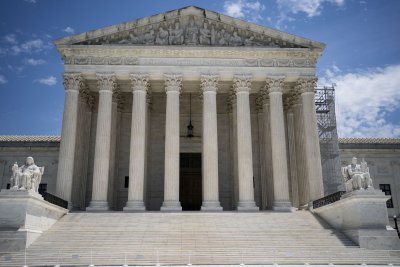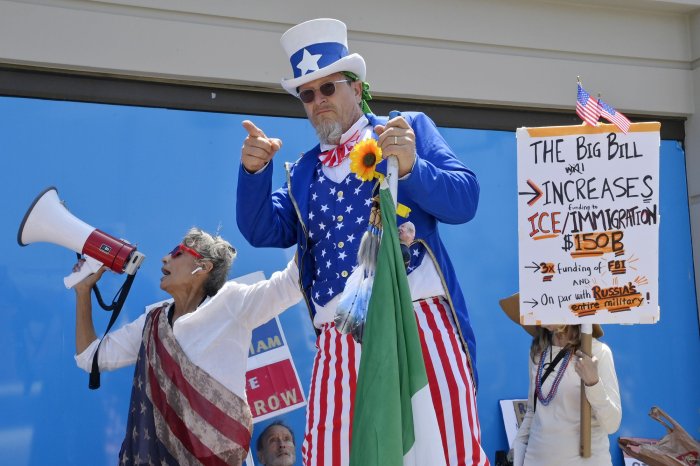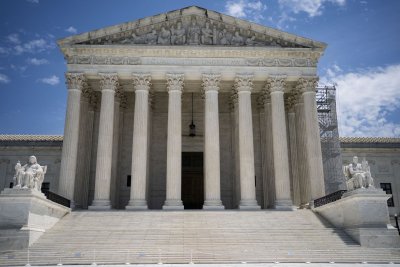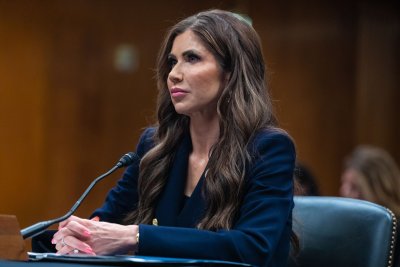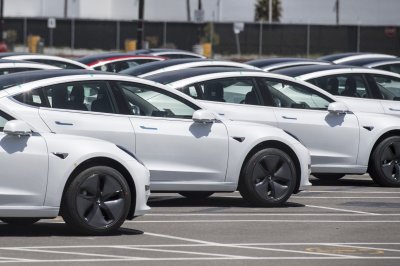Supreme Court again approves ending protective status for Venezuelans
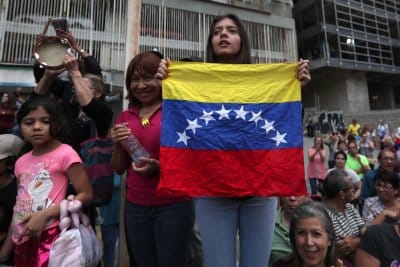
Opposition supporters rally at the Parque de Cristal park, in Caracas, Venezuela, in 2019. Longtime unrest in the nation has sent many from Venezuela to the United States. Now, the U.S. Supreme Court has ruled that the Trump administration can resume its deportation of Venezuelans as it ends their temporary protected status.
File Photo by Rayner Pena/EPA
Oct. 3 (UPI) — The Trump administration can resume its deportation of Venezuelans after the Supreme Court again overturned a lower court’s block on ending the temporary protected status.
The Department of Homeland Security in August ended the TPS protection for about 300,000 “migrants” from Venezuela, which U.S. District Court for Northern California Judge Edward Chen blocked on Sept. 5.
Chen’s ruling is the second in which he blocked the Trump administration’s effort to end protected status for Venezuelans, which the 9th Circuit Court of Appeals in San Francisco upheld in August, The Hill reported.
The Supreme Court overturned Chen’s first ruling when the Trump administration sought an emergency hearing in May, according to The New York Times.
Chen, who was appointed by President Barack Obama, afterward said the Supreme Court ruling lacked detail and again blocked the Trump administration from ending the TPS protection.
The Supreme Court agreed to review the matter again and repeated its earlier ruling.
“Although the posture of the case has changed, the parties’ legal arguments and relative harms generally have not,” the unsigned Supreme Court order says.
“The same result that we reached in May is appropriate here.”
Justices Elena Kagan and Sonia Sotomayor said they would have denied the emergency relief request by the Trump administration.
Justice Ketanji Brown Jackson called the court’s ruling “another grave misuse of our emergency docket” in her dissenting opinion.
“We once again use our equitable power to allow this administration to disrupt as many lives as possible as quickly as possible,” Jackson said.
She accused the Supreme Court’s majority of GOP-appointed justices of “privileging the bald assertion of unconstrained executive power over countless families’ pleas for the stability our government has promised them.”
Shortly before leaving office, former President Joe Biden on Jan. 17 extended the temporary protected status for Venezuelans for another two years.
Homeland Security Secretary Kristi Noem ended the protected status within days of the Senate confirming her nomination on Jan. 25.

